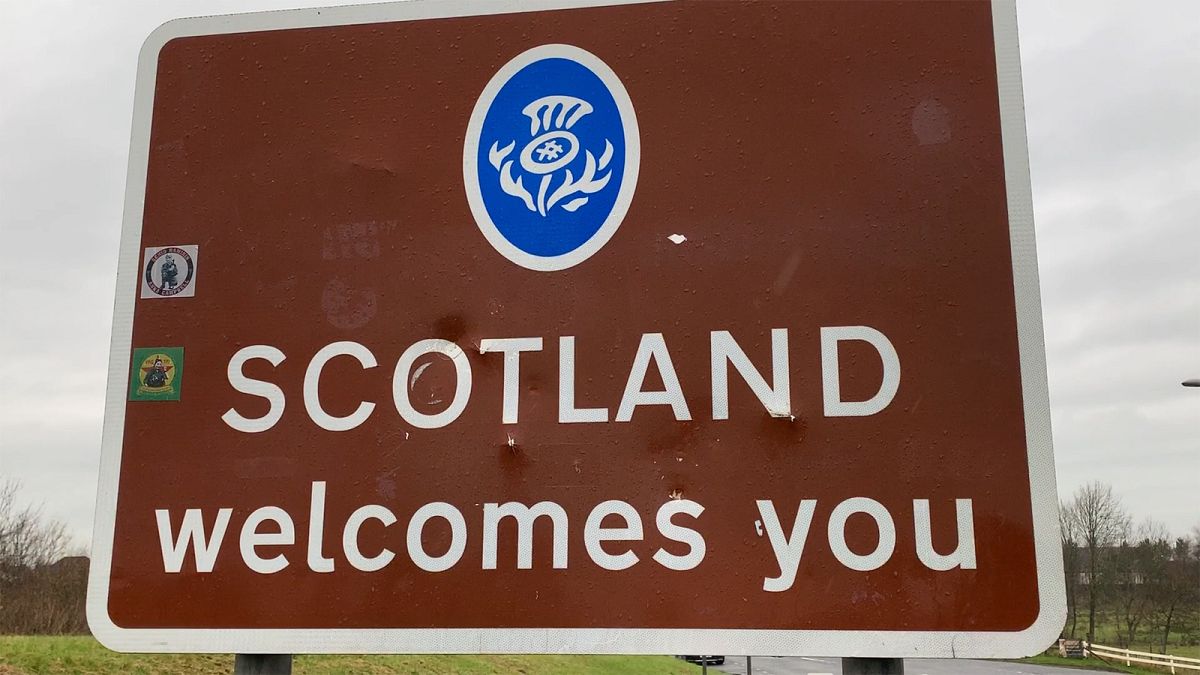As part of a series of reports, Euronews' Bryan Carter travels to both sides of the Scottish border to find out what ordinary citizens think about Brexit ahead of a parliamentary vote on prime minister Theresa May's withdrawal deal.
My trip across the United Kingdom’s borders took me a few miles south of Scotland, to the English city of Carlisle, where it is fair to say the weather was a little less welcoming than the people. Curbing migration had been a powerful message in persuading people to vote leave. I wanted to see for myself the impact of Brexit on Britain’s migrant communities.
I met Polish mother of two Paulina, who has lived in Britain for 14 years. She remains concerned about the future and what Brexit will bring.
"I’m just worried, like everybody. If you ask anyone from the EU, everybody will give you the same answer. We pay taxes, we pay everything, so we are clear. So I hope everything will be on the good way, and the law it will be the same for everybody, fingers crossed."
Paulina’s customer Acha was born in Scotland and raised by Polish parents. She is also worried about what leaving the EU might mean for her community.
"They (Polish migrants) are worried about living here. But also, a lot have gone back home, an awful lot have gone back home. Which is good in one way: that they have gone back where their roots are. But on the other hand, I think you know they have given so much to this country as well, and they’ve got such a fantastic name, the Poles, regarding their work ethic, their work ethic is amazing, which I am so proud of that," she says.
Leaving Carlisle, I hop on a northbound train and head across the border. In the 2016 referendum Scotland voted overwhelmingly to remain in the EU by 62 percent.
I soon started talking to 40-year-old Scottish remainer Neil, who works in advertising and feels very disillusioned about the whole Brexit process.
"It’s not looking good, and it looks like there’s going to be an objection to every stage, that’s really frustrating for me. Because I’m at a point now where I’m not sure I really care about what the deal is going to be. I just want a deal, because it's gone on so long now. And from my point of view, it’s strangling the economy. Even in my line of work we are noticing that brands or companies don’t want to spend because everybody is trying to figure out what the future holds."
Finally arriving in Scotland, I wanted to speak to the rural communities, where uncertainty over Brexit threatens jobs and livelihoods.
I met Graham, an agricultural contractor from Kirkpatrick-Fleming in South West Scotland, who has been in farming for nearly half a century. He has a fairly blunt and straightforward opinion of the people running the country in Westminster.
"I’ve heard more common sense talking to children in a nursery to be honest with you. It’s just a nonsense when you see…if you watch the programme of parliament, it’s unbelievably childish the way they are behaving - all behaving. There’s never going to be a Brexit deal that suits everybody, that’s why the vote was reasonably close. There’s never going to be a deal that suits everybody but we’ve got to embrace it now, and get on with it," he says.
Like most people I met in the UK, Graham thinks enough time has been wasted on the negotiations.
"The threat of a no-Brexit and the threat of another two years of indecision and fighting, instead of running the country properly, is going to cause more bother than it’s worth. We made the decision at the referendum, there is no need for another referendum."
My journey ended back on the border between England and Scotland. Two nations with a heavy past, who have managed to bridge many of their differences. A common history commemorated by man-made rock structures, called cairns.
Cairns are found all along the English-Scottish border. They are a testimony to the United Kingdom. But when it comes to Brexit, I found anything but unity. There is still a lot of uncertainty, fear and boredom about the whole divorce procedure. Whether or not these divisions can be overcome after Brexit, if Brexit happens, or if the problems here will be echoed across Europe, only time will tell.
By Bryan Carter.
